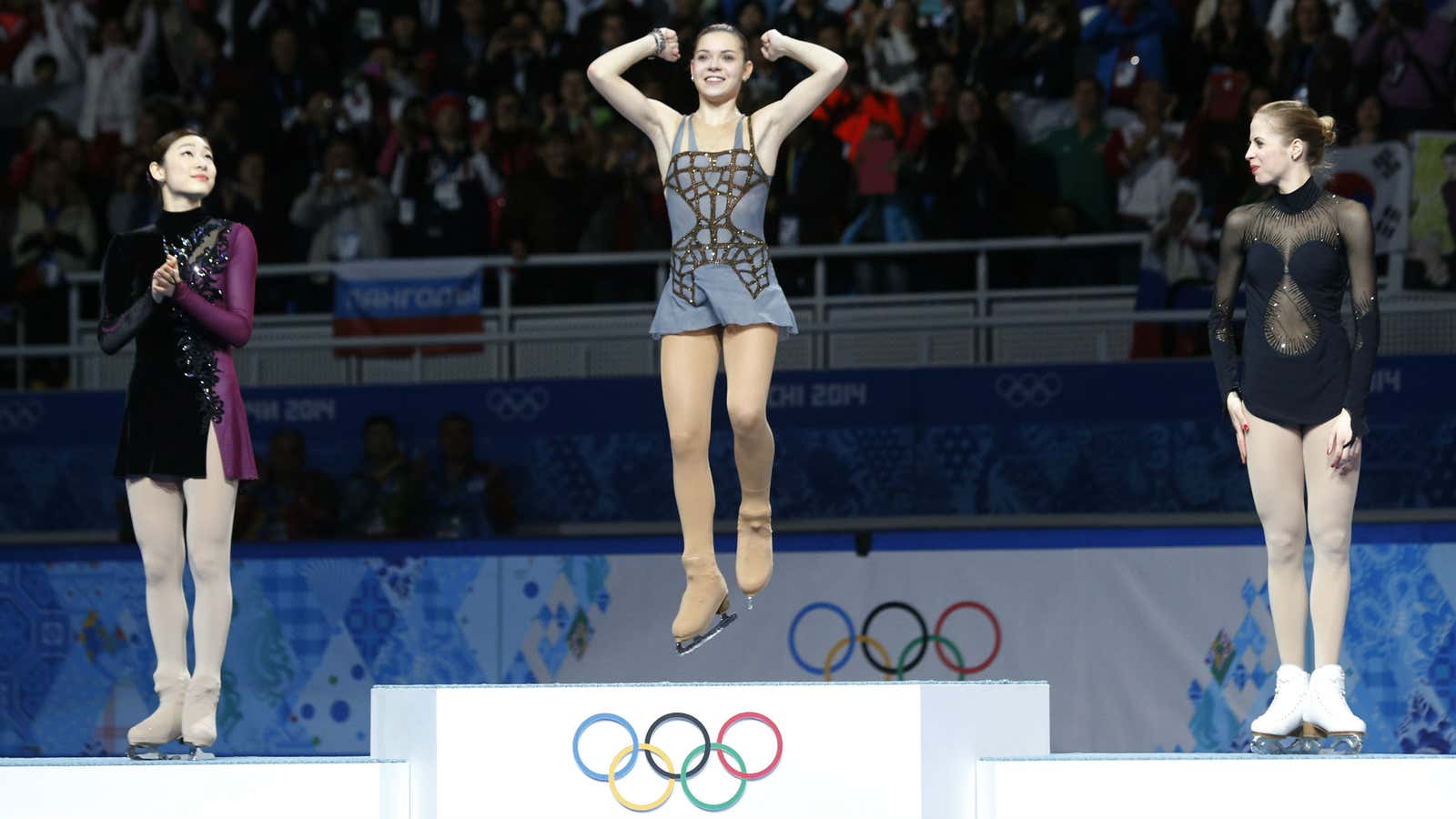Figure skating is routinely subject of debate, and it’s a Winter Olympic columnist’s specialty to write about whether or not it should even be considered a sport. One of the arguments against its legitimacy as a competitive discipline is the scoring. To improve objectivity, changes have been introduced over time, such as in 2005 when a series of required elements was introduced for choreography. Yet a fundamental arbitrary element remains part of the judging, leaving space to ultimately unquantifiable evaluations—ice skating is not, as the Olympic motto puts it, a simple matter of “citius, altius, fortius.” Translation: Faster, higher, stronger.
This was put to the challenge this week in women’s figure skating. After the Feb. 20 contest in Sochi, a petition was launched on Change.org calling for a reversal of the winner. The contention: the Russian Adelina Sotnikova won the gold medal (with a score of 224.59), topping Korean Yuna Kim (219.11), although the former’s performance was considered inferior by many. The petition rapidly become the most successful ever on the protest platform, reaching 1 million signatures overnight.
There have been allegations that the figure skating judges in Sochi may have be biased: four of the nine judges were Eastern European (one Russian), and both the technical controller and replay operators were Russian. However, there is no way to know how each judge voted: The process has been anonymous since 2002.
The reason for secrecy? A figure skating scandal in which Russia won a questionable gold over Canada.
In the 2002 Salt Lake City Olympics, the pairs’ figure skating gold was awarded to Elena Berezhnaya and Anton Sikharulidze, leaving the audience shocked that Jamie Salé and David Pelletier’s performance was judged inferior. At the time, a French judge was deemed responsible, apparently succumbing to national pressure. The International Skating Union investigated the matter, and eventually, Canada’s silver was upgraded to gold.
To avoid pressure in the future, the practice of secret judging was introduced—only to cause even more suspicions of partisanship as just seen in Sochi. While the online petition demands an investigation of the results—which may happen, as it did in 2002—many, including American figure skater Ashley Wagner, have asked the Olympics to get rid anonymous judging.
At least this scandal puts to rest the issue of figure skating’s inclusion in the Winter Olympics. We’ve come to count on the entertainment value.




